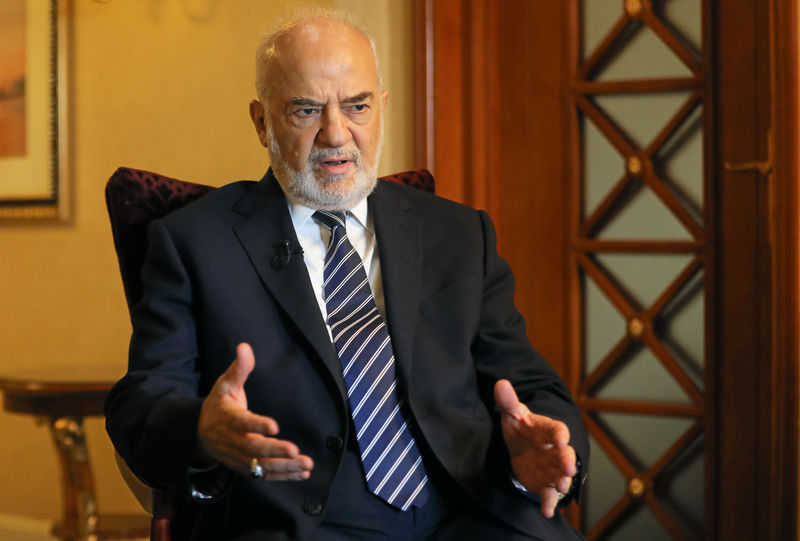By Ahmed Aboulenein
CAIRO (Reuters) - Iraqi Kurdish leaders must be prepared to face the consequences if they unilaterally declare independence and find implementation more difficult than they expected, Iraqi Foreign Minister Ibrahim al-Jaafari said on Wednesday.
Jaafari was in Cairo for an Arab League summit where the closing statement included a resolution calling a Kurdish independence referendum this month unconstitutional, mirroring the stance of Iraq's central government and national parliament.
Jaafari told Reuters in an interview Kurdish leaders should think carefully before going ahead with any independence move.
"Those who make such a declaration should bear the responsibility for it. It is easy to declare whatever you want but it is not that easy to actualize it," he said in his Cairo hotel room.
"We are depending on dialogue and also Arab, and non-Arab advocacy. As we saw yesterday, the Arab diplomatic mobilization was attained by Arab foreign ministers," he said.
The Kurdish area of northern Iraq has enjoyed broad autonomy since the first Gulf War in 1991. Since the 2003 U.S-led invasion and the overthrow of Saddam Hussein, it has been largely stable while the rest of Iraq has suffered insurgency.
Kurds are set to hold the referendum on Sept. 25 but Baghdad opposes it, with lawmakers voting to reject it. Iraq's neighbors -- Turkey, Iran and Syria -- also oppose the referendum, fearing it could fan separatism among their own ethnic Kurdish populations.
OIL
Western powers are concerned a plebiscite in Iraq's semi-autonomous Kurdish region - including the oil-rich city of Kirkuk - could divert attention from the war against Islamic State militants.
Kurds have sought an independent state since at least the end of World War One, when colonial powers divided up the Middle East after the collapse of the multi-ethnic Ottoman Empire.
Iraq is in the final throws of a U.S.-backed campaign to oust the Sunni militant groups which seized vast swathes of the country back in 2014. Iraqi forces took back its second largest city, Mosul in July, and Tal Afar last month.
Jaafari said the international community must offer financial and other support to Iraq for the rebuilding of Mosul and other cities retaken from Islamic State.
"It is well known that nations who have emerged from war and destruction suffer great losses especially if the opposing party is implementing a scorched earth policy. (They) never surrendered land except after destroying it," he said.

"Homes, institutions, hospitals mosques, markets and worship places, all were destroyed. The money needed is not little, a great sum is required."